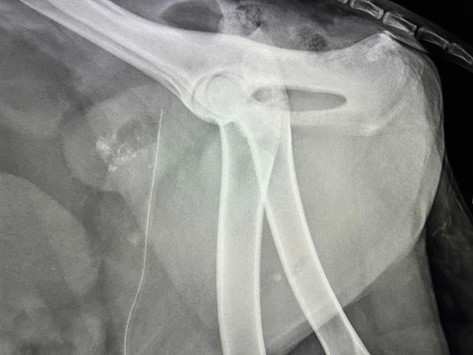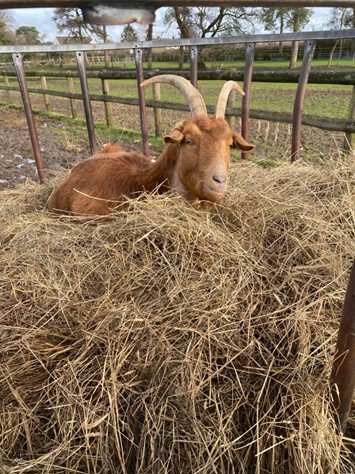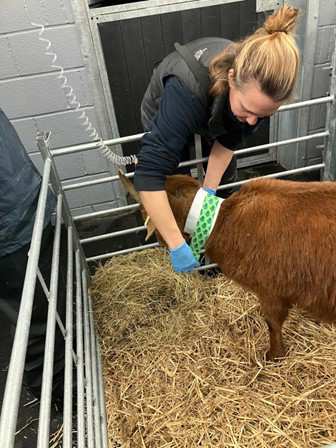Bud’s vet was first called out when he was seen straining to urinate and appeared very uncomfortable, and his vet suspected that a urolith (bladder stone) was blocking his urethra. Urolithiasis in male goats (and wethers) is life-threatening, and sadly often has a poor prognosis. Bud’s symptoms were managed with Buscopan and flunixin before he made the journey to Langford for referral.
The first step was to empty Bud’s full bladder before this caused further complications, achieved by inserting a Cystofix catheter through the abdominal wall and into the bladder. Then, radiography confirmed that there were in fact multiple stones in the urethra and bladder, and these did not dissolve when Bud’s urine pH was neutralised.
This meant that a more radical approach was needed to treat the blockage, and, with the help of the Anaesthesia and Soft Tissue Surgery teams at the Langford Small Animal Hospital, Bud underwent a perineal urethrostomy (creating a new opening for the urethra at the perineum).
Following surgery, Bud was able to urinate without the catheter, although it took a while for his appetite to return. Bud was discharged with instructions on managing his diet going forwards – urolithiasis is always going to be risk for castrated sheep and goats, but the risk can be mitigated with increased forage and limited concentrates.



